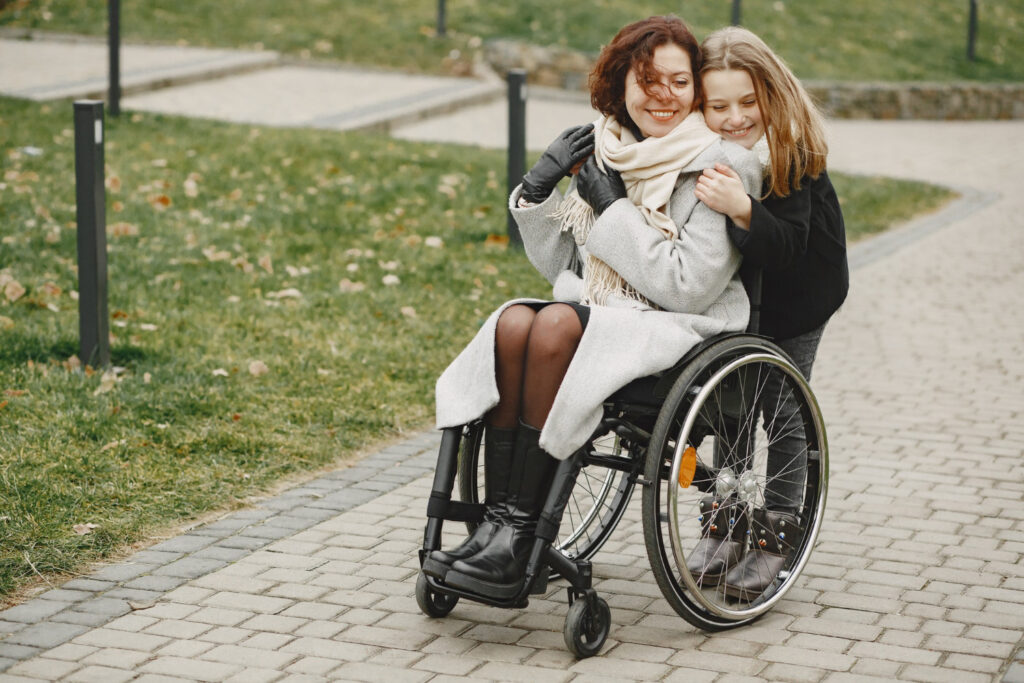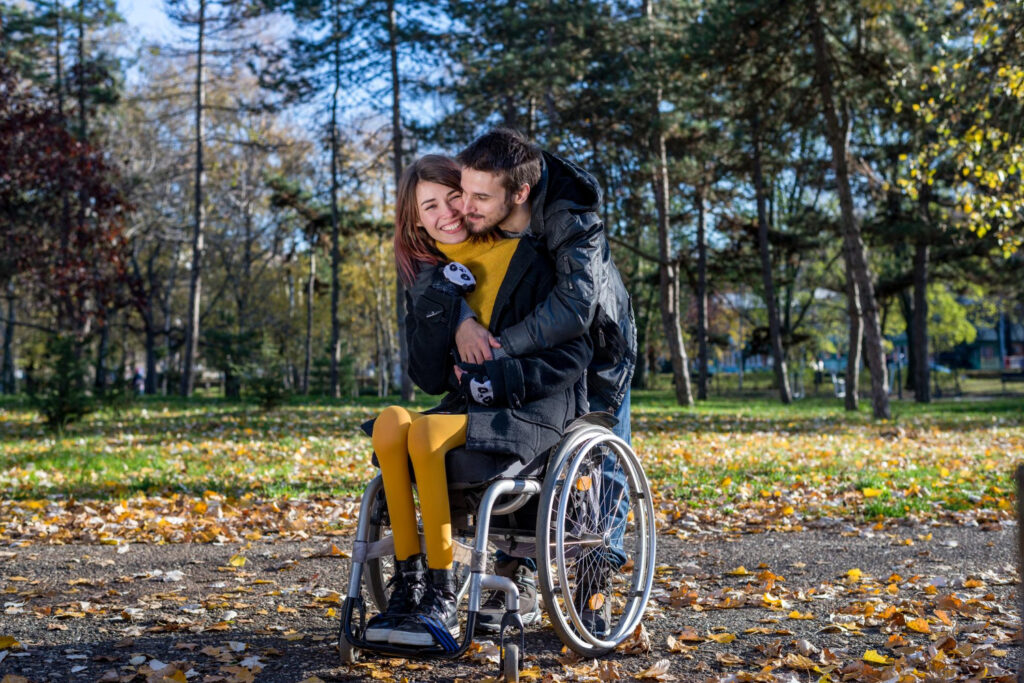In a world that is still not fully adapted to differences, people with disabilities face numerous barriers on a daily basis – not only physical, but also social, economic and psychological. Stairs without ramps, public buildings without access, the absence of Braille signage or closed doors to education and employment – all of these create invisible walls that limit the opportunity for people with disabilities to be active members of society.
Physical barriers are often the most visible – inaccessible public spaces, transport without adaptation, or a lack of adequate assistive devices. But social isolation and prejudice can be even more painful. People with disabilities frequently encounter misunderstanding, stigma and underestimation, which make them feel “different” in the most limiting sense of the word.
Economic difficulties are also not uncommon. Many are unable to find suitable employment due to a lack of accessible environments or insufficient support from employers. And those who do manage often face low income and limited opportunities for advancement. These challenges also affect mental health – the feeling of helplessness, isolation and lack of choice can lead to anxiety, depression and low self-esteem.
That is why support for people with disabilities is not merely a moral obligation – it is a reflection of a society’s maturity and empathy. A truly advanced society is not measured solely by economic indicators, but by how well it takes care of its most vulnerable members. Support means not only compassion, but action – creating accessible infrastructure, ensuring educational and professional opportunities, inclusion in community activities and legal protection against discrimination.
This is an expression of a society that values dignity, equality and the right to a fulfilling life for every individual, regardless of their abilities or limitations. Only in this way can we build a world in which diversity is accepted, respected and supported – not excluded.
What does real help mean?
Help for people with disabilities can take many forms, each aiming to create real opportunities for equal participation in society. It is important to understand that support is not merely a matter of pity or charity – it is a strategic approach to building a fair and accessible society for all.
First and foremost, physical accessibility is a fundamental element for the inclusion of people with disabilities in public life. This includes the construction of ramps, lifts, adapted toilets, tactile and auditory signage, as well as accessible public transport. Every inaccessible entrance is a closed door to education, healthcare, or cultural life. When the urban environment is not adapted, people with motor or sensory impairments are effectively excluded from full participation.
The next important step is access to education and training. This means not only physical presence in school or university, but also the use of adapted learning materials, provision of personal assistants, additional support hours, or technological solutions – such as specialised software, audiobooks, sign language. Every child and young person should have the opportunity to develop their potential, regardless of their physical or cognitive abilities. Education is not an end in itself – it is the foundation for self-confidence, independence, and professional fulfilment.
Work integration is another key element of real support. The inclusion of people with disabilities in the labour market should not be perceived as an act of charity, but as an investment in human capital. Policies are needed to encourage the employment of people with disabilities through tax incentives, subsidies, or employer consultations. The workplace must be adapted – through the provision of appropriate equipment, flexible working hours, and understanding from the team. This enables people with disabilities to feel useful, independent and accepted.
In addition to economic support, the provision of health and social care is extremely important, which should include both medical services and psychosocial support. Rehabilitation, psychotherapy, access to assistive devices (wheelchairs, hearing aids, prosthetics, etc.), as well as services such as personal assistance, are not only support but also a right of every person with a disability. When these services are inaccessible or limited, the quality of life of these individuals deteriorates significantly.
Last but not least, legal protection and advocacy play an essential role. Legislation must guarantee protection against discrimination and equal access to all areas of public life – from work and education to culture and sport. This involves not only the adoption of laws but also effective enforcement. The voice of people with disabilities must be heard in public debates, in institutions and in the decision-making processes that affect their lives.
Ultimately, real help does not create dependency, but inspires independence. It supports individual choice, encourages initiative, and enables people with disabilities to participate fully in social, economic and cultural life. This is not just social policy – it is a way to build a society in which everyone has a place, a voice and the opportunity to live with dignity.

Why is support for people with disabilities so important?
People with disabilities are among the most vulnerable groups in society, regardless of the country in which they live. They often face challenges that remain invisible to most – limited access to education, restricted opportunities to find employment, inaccessible healthcare, and a lack of physical and digital accessibility in public spaces. These barriers not only complicate daily life but also limit the potential for independence, development and participation in society.
According to the World Health Organization, more than 1 billion people worldwide live with some form of disability, which represents over 15% of the global population. These figures clearly show that people with disabilities are not a “minority”, but a significant part of society. Nevertheless, they often remain outside the focus of social policies, economic opportunities and public attention.
It is important to emphasise that in many cases it is not the disability itself that limits a person’s opportunities, but the lack of support, understanding and a suitable environment. When institutions do not provide adapted services, when employers fail to ensure accessible working conditions, or when public spaces are not designed to meet diverse needs, this leads to social isolation and a sense of exclusion.
That is precisely why we must view disability not as an individual issue, but as a social challenge that can and must be overcome through targeted policy and solidarity. This includes not only physical accessibility and assistive devices, but also a change in attitudes, access to education, inclusion in public life and respect for human dignity.
True support begins with the understanding that people with disabilities have the same rights as everyone else – to study, to work, to start families, to travel, to vote and to be heard. A society that respects and supports these rights is a society in which every individual has their rightful place.

What does Help One do?
Help One is an organization that believes in the power of compassion and equal opportunities. Part of its mission is focused specifically on supporting people with disabilities by offering:
- Financial and material assistance – for the purchase of assistive devices and adapted equipment;
- Consultations and psychological support – for both people with disabilities and their families;
- Training and integration programmes – to support better adaptation to the labour market;
- Collaboration with institutions and employers – to create more accessible and inclusive workplaces;
- Volunteering initiatives – to build a friendly environment where everyone feels accepted.
- Help One does not simply provide assistance – it gives a voice to those who are often unheard.
How can we be part of the change?
- Donate – every amount can be used to purchase a wheelchair, a hearing aid or an adapted computer.
- Become a volunteer – your time and attention can help someone feel accepted.
- Share – awareness is the first step towards compassion.
- Be an advocate – speak up when you see injustice or lack of accessibility.
A society with room for everyone
Support for people with disabilities is not a matter of pity – it is a matter of justice and human rights. Every ramp, every helping hand, every effort in this direction brings our society closer to a world where diversity is a strength, not a barrier.
Organizations like Help One remind us that dignity is not a gift – it is a right that we must all protect and uphold.